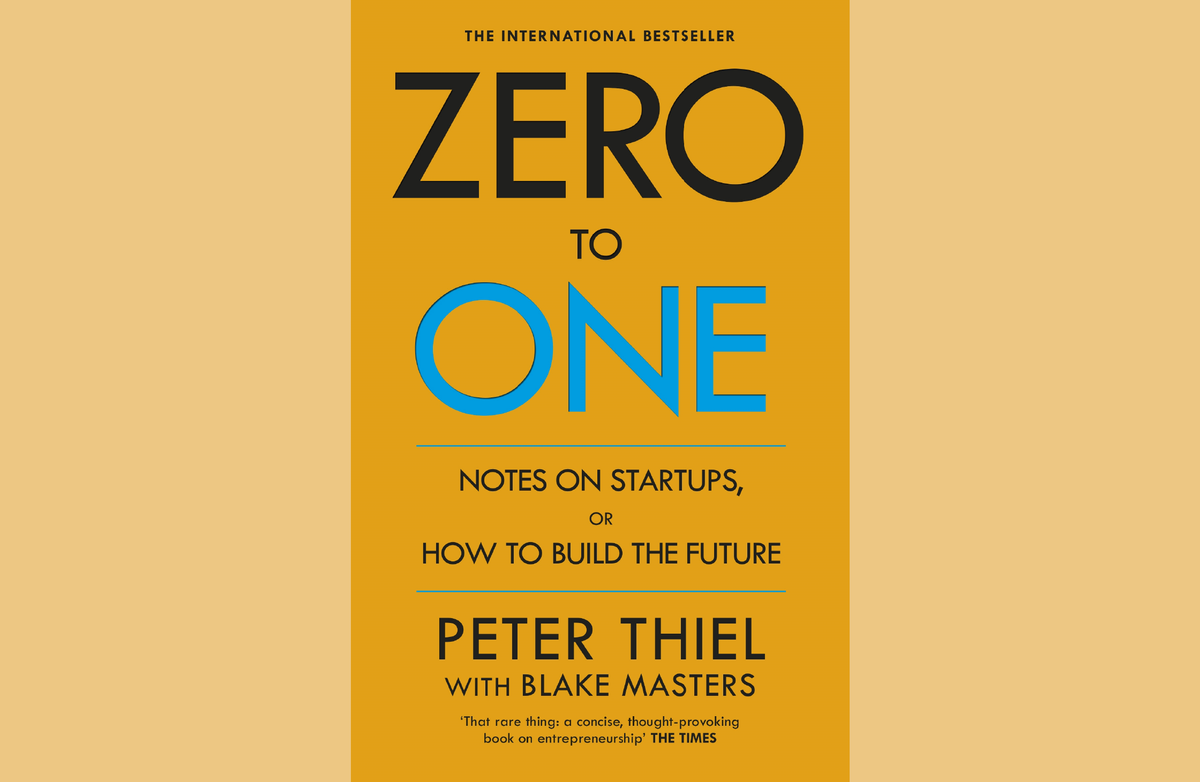The Seven Questions That Lead to Peter Thiel's Billion-Dollar Success
Discover the seven powerful questions from Peter Thiel's Zero to One that can help you build a groundbreaking business. Learn how to create unique products, dominate niche markets, and ensure long-term success.

I’ve been around the block in the startup world, and let me tell you—there’s a lot of noise out there. From the well-worn advice to “work harder” or “be more innovative,” it often feels like everyone’s just giving you the same old song and dance. But Peter Thiel’s Zero to One? It cuts through all that and gets straight to the heart of what truly matters when building a business that can go from zero to one—creating something completely new and revolutionary.

Here’s the thing: these seven questions go way beyond the standard hygiene checklists you usually get when thinking about a startup. They aren’t just about selling your product or looking for the next shiny object. They push you, as a CEO or founder, to think bigger. To step up your game. To build something that’s going to matter. This isn’t about making a quick buck or building something “just okay.” Thiel’s approach asks you to create a legacy. A business that disrupts industries leaves its mark and gives you something to be genuinely proud of.
So, let’s dive into the seven questions that can help you build that kind of business. These questions aren’t about checking the boxes—they’re about taking that big leap from nothing to something extraordinary. Here’s how I interpret them:
1. The Engineering Question: Can you create breakthrough technology instead of incremental improvements?
This one’s all about thinking big. We all know that small, incremental changes are safe—they keep you in the game but don’t make you a game-changer. Thiel’s argument is simple: don’t just improve on existing stuff; create something new. Think of it like this: Tesla didn’t just build another car. They built a car that redefined what a car could be. So ask yourself, are you doing something groundbreaking? Or are you just making a slightly better version of the same old thing?
Famous Example: Tesla
Tesla is the perfect example of this question. They didn’t just improve on gasoline-powered cars; they reimagined what a vehicle could be—electric, self-driving, and part of a larger vision to revolutionize energy. Elon Musk’s focus wasn’t just on building a better electric car but on disrupting the entire automotive industry. By pushing the envelope on innovation, Tesla became a market leader, changing the game in ways traditional car manufacturers couldn’t even imagine.
2. The Timing Question: Is now the right time to start your business?
Timing is everything. Too early, and you might as well be yelling into the void; too late, and you’re just another fish in a very crowded pond. You need to hit that sweet spot when the world’s ready to hear your idea, but it hasn’t yet caught on. Facebook was born just at the right time, after social media had built up for years but still hadn’t reached its peak. You don’t need to be first, but you do need to be right when the timing is spot-on.
Famous Example: Facebook
Facebook nailed the timing when it launched. Social media has been around in various forms, but Facebook capitalized on the growing need for a more cohesive online community at precisely the right moment. Had Facebook launched five years earlier, there wouldn’t have been the necessary critical mass of internet users, and the company might not have been able to scale as it did. The timing was everything—and Facebook didn’t miss the boat.
3. The Monopoly Question: Are you starting with a significant share of a small market?
This one’s huge. Thiel isn’t just pushing for success in a big, already-established market. He’s making you look for a small market with potential where you can grab a huge chunk of the action before anyone else even realizes it’s valuable. Once you own that niche, you can start expanding. Look at Google—they didn’t begin with global domination; they started by owning the search engine market. Then, they grew from there. The idea is to dominate something small and expand to more significant success.
Famous Example: Google
Google is a textbook example of this question. When it started, search engines were a dime a dozen, but Google found a way to dominate the search market. They didn’t try to be everything for everyone; they focused on becoming the best search engine. Once they controlled search, they expanded into other areas like advertising, maps, and cloud computing. Their strategy was clear: own a small market, then scale. That strategy allowed Google to become one of the most successful companies in the world.
4. The People Question: Do you have the right team?
This one might seem like a no-brainer, but I can’t stress enough how important it is to have the right people around you—a great idea without the right team behind it—an idea. Your team is the engine that makes your vision a reality. You want people who are skilled but deeply committed to your mission. They should complement your strengths and shore up your weaknesses. Find the people who believe in what you’re building as much as you do—and you’re golden.
Famous Example: Apple
Apple is an incredible example of how a strong team can turn a great idea into a global success. Steve Jobs, Steve Wozniak, and their early team at Apple didn’t just have complementary skills; they were a group of people who sincerely believed in the vision of creating beautifully designed, user-friendly technology. Their combined passion, vision, and unique expertise were key to Apple’s success, allowing it to revolutionize multiple industries, from computers to smartphones.
5. The Distribution Question: Do you have a way to deliver your product?
You could have the most brilliant product in the world, but if you don’t have a plan to get it into people’s hands, then what’s the point? Distribution is often the overlooked piece of the puzzle. Thieclarifiesar that you can’t just focus on building—you need to know how to get your product into the world. Airbnb, Uber, and even the simplest of apps succeeded not just because they were cool but because they figured out how to make them accessible. Think about how you’ll get your product into the hands of your customers early on.
Famous Example: Airbnb
Airbnb didn’t just create a platform for people to rent out their homes; they cracked the distribution code by making it incredibly easy to book and list properties. Their success lies not only in their unique product but in how they figured out the best way to reach their customers. They targeted early adopters and used guerrilla marketing to get their platform into the hands of users, ultimately disrupting the travel and hospitality industries.
6. The Durability Question: Will your market position be defensible in 10 or 20 years?
This is the long game, and it's essential. Sure, you might dominate now, but what happens when competitors appear or the market changes? Can you defend your position and maintain that edge over time? Thiel encourages you to build a successful business that stands the test of time. Look at Apple—yes, it’s a behemoth now, but it’s also built on a foundation that’s tough for anyone to replicate. How will your company stafirmong in the future?
Famous Example: Amazon
Amazon’s dominance is an excellent example of durability. Jeff Bezos didn’t just create an online bookstore—he built an entire ecosystem that would become practically impossible to replicate. With its vast distribution network, customer loyalty, and diversified business model (from cloud computing to entertainment), Amazon has positioned itself as a powerhouse with a market position that is nearly untouchable, ensuring long-term success for years to come.
7. The Secret Question: Have you identified a unique secret that others don’t know?
This is where things get fun. Thiel talks about finding a "secret"—a unique insight or approach that others haven’t figured out yet. It could be a new way of looking at an old problem or a fresh perspective on a business model. These secrets are what make her genuinely successful startups apart from the crowd. Think of PayPal’s early approach to online payments—people didn’t think it would work, but it did because they saw something no one else did. What’s your secret? What’s the thing that only you can see?
Famous Example: PayPal
PayPal’s success was built on a secret that people would trust sending money online if it was made easy and secure. Many. People were skeptical about using the Internet for financial transactions at the time, but PayPal created a simple, secure platform that reassured users. This secret insight into human behavior gave them the edge over competitors, allowing them to dominate the online payment space and become the giant they are today.
Wrapping It Up: How to Build a Business That Matters
So, these seven questions? They’re more than just a checklist—they’re a blueprint for building a business that stands out, makes a real impact, and changes the world. They push you to think beyond surviving in the marketplace and encourage you to dream more and more purposefully.
For me, they’ve helped shape the way I approach new ventures and understand what it takes to build something that truly matters. And if you ask yourself these questions with honesty and clarity, you might end up with a billion-dollar business of your own. Let’s get to work!

Step-by-Step Guide to Using Thiel’s Seven Questions
- Brainstorm Your Idea:
Start with your business concept. Think about how unique your product is. Does it represent a significant leap forward in technology or just a tweak? - Check the Timing:
Is the market ready for your idea? Consider factors like changing consumer behavior, industry shifts, or evolving technology: research competitors and market readiness. - Find Your Niche:
Is there a small market you can dominate? It’s essential to own a niche first before expanding. Look for gaps in the market that others are missing. - Build Your Dream Team:
Evaluate if you have the right team. Are they passionate about your vision? Do they have the skills needed to execute? - Plan Your Distribution:
How will you get your product into people’s hands? Research and decide on the most effective distribution channel- digitaltal, direct sales, or partnerships. - Create Long-Term Defensibility:
Think ahead. How can you make your position in the market defensible? Consider patents, exclusive partnerships, or building strong brand loyalty. - Find Your Secret:
What insight or approach sets you apart? Identify your “secret” that others haven’t discovered yet, whether it’s a new technology, market approach, or consumer insight.
These steps will help you go from having an idea to building something world-changing. Take your time with each question, and don’t rush. This process isn’t just about checking boxes—it’s about laying the foundation for lasting businesses.


